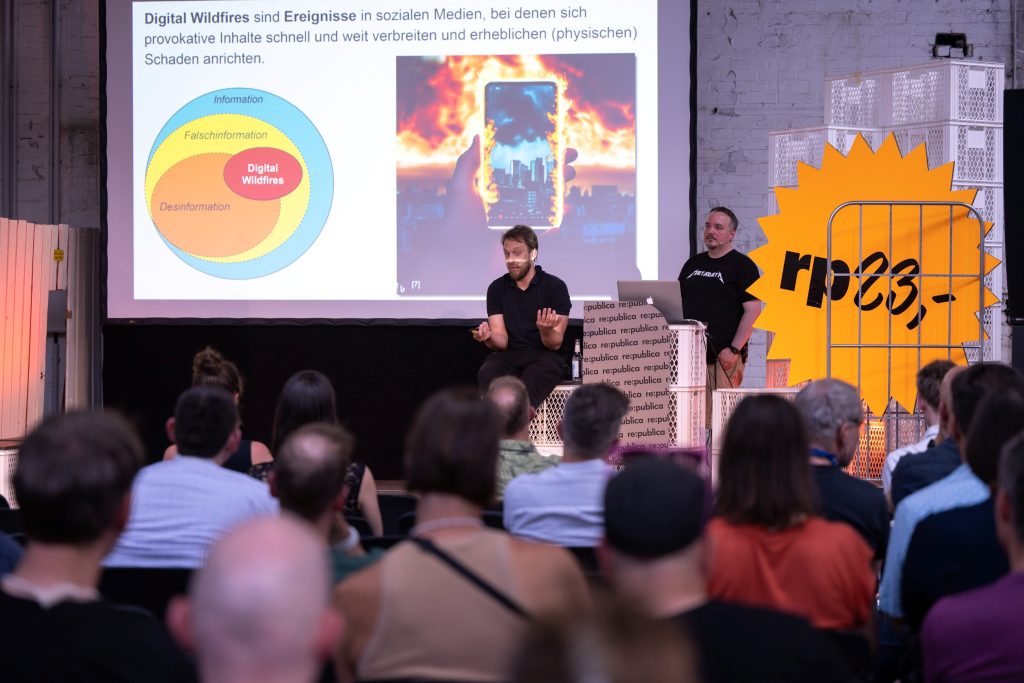The idea that harmful electromagnetic radiation emanates from mobile networks is not new. While ionizing radiation, such as X-rays, alpha, beta, gamma, or neutron radiation, can pose a health risk, low doses of non-ionizing radiation, like that emitted from radio or mobile phones, are considered harmless. Nevertheless, their alleged dangers continue to be propagated among conspiracy believers. The introduction of new mobile technologies, such as the rollout of the 5G standard, is often used to reheat old conspiracy narratives, and social media acts as an accelerator of evolution, where these narratives continue to develop.
Events in which self-reinforcing effects in online social networks have dangerous impacts that extend beyond the boundaries of virtual space are referred to as Digital Wildfires. They are triggered by rapidly spreading, counterfactual information that penetrates public consciousness swiftly before leading to serious, negative consequences in the physical world.
On January 21, 2020, nearly two months before the WHO declared COVID-19 a pandemic, a tweet appeared that read: “China is 5G now & working toward 6G. Wireless radiation is an immunosuppressor. Coincidence?”. The tweet caused hardly any direct reactions, but in the following days, a series of similar tweets appeared. Their number grew steadily, and about ten weeks later, in early April 2020, a series of arson attacks on cell towers began. They marked the tipping point at which misinformation about harmful mobile radiation became a Digital Wildfire, which still affects and endangers critical communication infrastructures worldwide today.
We provide an insight into three years of research and show how future Digital Wildfires could be identified as early as possible. Moreover, we convey an understanding of the basic concept of Digital Wildfires and demonstrate that these events do not come out of nowhere, but that there are actors who pave the way for escalation.
Events in which self-reinforcing effects in online social networks have dangerous impacts that extend beyond the boundaries of virtual space are referred to as Digital Wildfires. They are triggered by rapidly spreading, counterfactual information that penetrates public consciousness swiftly before leading to serious, negative consequences in the physical world.
On January 21, 2020, nearly two months before the WHO declared COVID-19 a pandemic, a tweet appeared that read: “China is 5G now & working toward 6G. Wireless radiation is an immunosuppressor. Coincidence?”. The tweet caused hardly any direct reactions, but in the following days, a series of similar tweets appeared. Their number grew steadily, and about ten weeks later, in early April 2020, a series of arson attacks on cell towers began. They marked the tipping point at which misinformation about harmful mobile radiation became a Digital Wildfire, which still affects and endangers critical communication infrastructures worldwide today.
We provide an insight into three years of research and show how future Digital Wildfires could be identified as early as possible. Moreover, we convey an understanding of the basic concept of Digital Wildfires and demonstrate that these events do not come out of nowhere, but that there are actors who pave the way for escalation.


